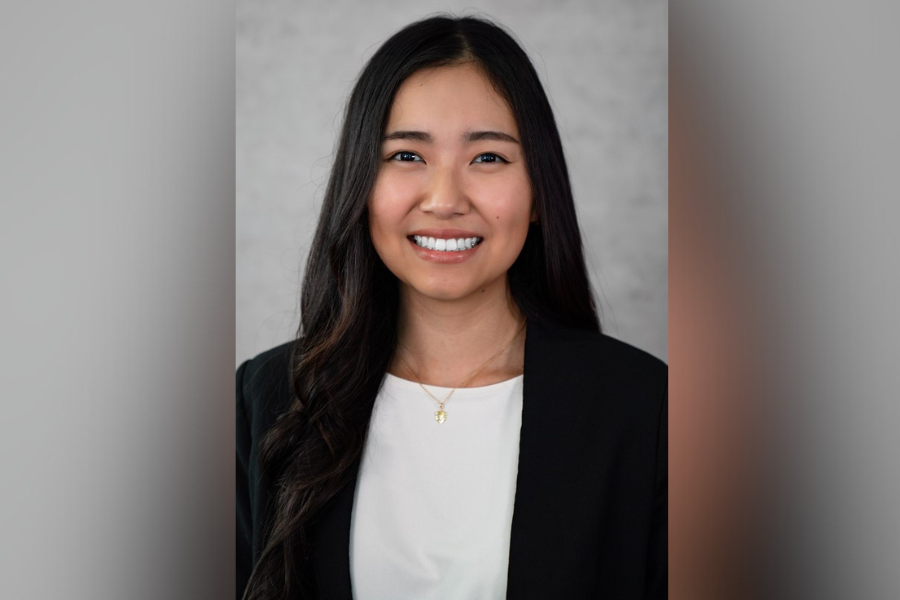
MS3 student Ayumi Sakamoto started researching low testosterone's relation to total mortality in the Asian-American population.
"There have been so many studies done in other populations looking at low testosterone and if it leads to poor health outcomes or increased mortality. Many papers have established this, but there haven't been many studies in Asian American populations," Sakamoto said. "We want to see if this trend is replicable in our population of Asian American men in Hawaiʻi, who have been followed for 32 years."
Research can often take an investigator down a different path.
When Sakamoto introduced the Kuakini Honolulu Heart Program's FOXO3 gene data to this study, she made an exciting discovery.
"FOXO3 is thought to play a huge role in a lot of central mechanisms like homeostasis and cell regulation,” Sakamoto explained. “We were able to see that FOXO3 mitigates the effects of having low testosterone on mortality. While we were able to find that Asian Americans who had lower levels of testosterone tended to have higher rates of total mortality, people who had low testosterone but with the good copy of the FOXO3 gene didn't succumb to these effects.”
Sakamoto discovered that people with the G allele of FOXO3 negated any effects of low testosterone.
"For some reason, they were okay," Sakamoto reported. "Even if they had low testosterone, they were okay. They were able to live just as long as people who had high levels of testosterone. On the flip side, what we found is that people who did not have the G allele of FOXO3 and had two copies of the "not good" T allele of FOXO3 were not only susceptible to the negative effects of low testosterone, but we found that this effect was exacerbated in that group."
Sakamoto's findings will spark further research into the role FOXO3 plays in longevity, and it brought her to center stage at the American Geriatrics Society Conference, where she was the plenary speaker.
"I was really honored," Sakamoto said. "I was humbled that they chose our project out of all those submitted this year."
The AGS Conference was held online, and Sakamoto saw more than 500 people enter the virtual meeting room to learn about her exciting discovery involving the mysterious FOXO3 gene.
"People are very curious about our project because it's novel research. I don't think anyone has ever really looked at the relationship between the FOXO3 gene and testosterone levels and mortality," Sakamoto said.
After her recorded presentation, Sakamoto fielded questions from a curious audience.
"It felt good that people were interested, listened, and had questions. Hopefully, it can help us with future directions, too," she said.
Sakamoto expressed her gratitude to Dr. Kamal Masaki, Mr. Randi Chen, and all co-authors of this study.
"They've been so instrumental in this," Sakamoto said. "Dr. Masaki is an amazing mentor. She's been there for me since the beginning of medical school when I expressed my interest in geriatrics. Having a mentor like her makes a tremendous difference, and I'm super lucky that we have someone like her at JABSOM and in our department of geriatrics. I hope she gets the recognition she deserves for mentoring students like me and guiding them to grow as researchers and clinicians."
Sakamoto was grateful to present on a stage as prestigious and as large as the AGS.
"I think it's also really special that we're able to represent our state and our school on a platform like that," Sakamoto said. "Hopefully, it can attract more attention to geriatrics and the research that we're doing in Hawaiʻi. I think it is very important because, especially with the diverse cohorts in Hawaiʻi and all the interesting and unique data, we have a lot to offer the research world."
Sakamoto was interested in geriatrics when she entered medical school, and as she prepares to enter her last year, she's still interested in pursuing it as a specialty.
"No matter what I do, I know that I want to work with older adults," Sakamoto said. "That hasn't changed and has gotten stronger with my rotations."